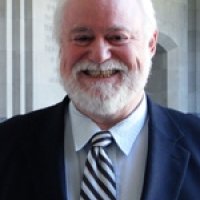Business of Civil War: New Forms of Life in the Debris of the Democratic Republic of Congo
“How, in the absence of effective state sovereignty and national government and in the presence of numerous armed contenders for power, have traders managed to build and protect…economic enterprises in eastern Congo?” – Patience Kabamba
Non-State Networks: Social Capital or Social Liability?
Before delving into the specifics of the case study in his book, Patience Kabamba, Assistant Professor of International Studies at Marymount Manhattan College, focused his remarks on the two schools of thought on the value of non-state networks. One group views the networks favorably, as they can be what Kabamba termed “solutions to problems of the failure of states and markets” or “governance without government.” The other group, however, is leery of these networks’ “logic of poverty, predation, and provincialism” that they feel impedes state development. Instead of taking a side in this debate, Kabamba felt it was more useful to look at individual cases rather than trying to judge these networks as good or bad. This then led to a discussion on a case study of the Nande in the city of Butembo in the northeastern Democratic Republic of Congo (DRC).
The Case of Butembo
Many are aware of the ongoing conflict in the DRC, which has been the source of grave pain, suffering, and violence against the local population since 1996. However, few are aware of the pervasive peace and stability in Butembo, North Kivu - an area widely perceived to be exceptionally violent. Butembo is ethnically homogenous, populated predominantly the Nande. The city’s most influential residents, go by the moniker of the “G8,” and are a group of roughly a dozen Nande exporters/importers raking in millions of dollars from the gold trade. These traders have managed to pay the local rebels for peace in Butembo, making this a unique case where stability has been achieved without the government. The key question of Kabamba posed was “how?”
A Holy Trinity?
Kabamba shared his findings on the existence of a unique three-way relationship in Butembo between traders, rebels, and the Church. “Militias and traders reign in overlapping and intersecting ways,” said Kabamba, referring to the financial ties between the two groups. Both the rebels and the traders, however, have the utmost respect for the Church, which is the key implementer of development projects in the region. Thus, the tripartite arrangement controls key aspects of life in Butembo: the rebels provide security; the traders deliver economic prosperity; and the Church assists in improving the quality of residents’ lives. This reality led Kabamba to challenge the idea that the state had failed in Butembo precisely because there never had been an effective state to fail and governance there exists without government.
Putting Butembo in Context
“Let’s put this story in a Washington context…and try to get some lessons out of its richness,” said Tony Gambino. He took on some misinformation about the DRC and North Kivu, demonstrating that it was not entirely chaotic and rife with conflict. He also explained that a unique part of Butembo’s story was its geography: the fact that the city is located in a cold, mountainous region has additionally served to protect it from attacks. While the Nande have overcome obstacles such as inadequate road and railway infrastructure, their focus has been on internal development and maintaining ethnic homogeneity—they have actually shown little interest in the rest of the country. He noted that opportunities for advancement in Butembo are quite different from those present elsewhere, whereas in other parts of the country, violence reigns and meaningless government posts are “parasites” on resources. Finally, Gambino closed his remarks with two questions: Is Butembo the DRC’s Rwanda? And is Butembo a model for the DRC? In both instances, his opinions were mixed. While Butembo shares with Rwanda a focus on economic development, but is ethnically homogenous, resource-rich, locally focused, and has no desire to secede. Ethnic homogeneity also poses a problem when comparing Butembo to the DRC as a whole. In sum, though Butembo may inspire on some levels, it may not be an appropriate development model for other situations.
The Importance of Governance
Ultimately, Kabamba and Gambino were equally hesitant to endorse Butembo as a role model. Kabamba reiterated his opinion that the right answer is unique to each individual situation, and continued to distance himself from the idea of absolute truths. He stressed the need, in any case, for an organic, decentralized state where the government holds a significant stake in the community and local knowledge plays a central role. Gambino compared Butembo to the larger, but similarly resource-rich Katanga province, concluding that the two are more different than similar despite some surface approximations. He noted, however, that the World Bank’s approach to resolving conflict in the DRC as a whole, which does not focus on governance, is problematic because it only treats the symptoms of the problem rather than the root causes. Thus, Butembo provides an important lesson in the idea of government vs. governance: “Here [in Butembo], clearly, there is no failure of governance- but the government is not there. So we can’t confuse the two.”
Speakers

Hosted By

Africa Program
The Africa Program works to address the most critical issues facing Africa and US-Africa relations, build mutually beneficial US-Africa relations, and enhance knowledge and understanding about Africa in the United States. The Program achieves its mission through in-depth research and analyses, public discussion, working groups, and briefings that bring together policymakers, practitioners, and subject matter experts to analyze and offer practical options for tackling key challenges in Africa and in US-Africa relations. Read more
